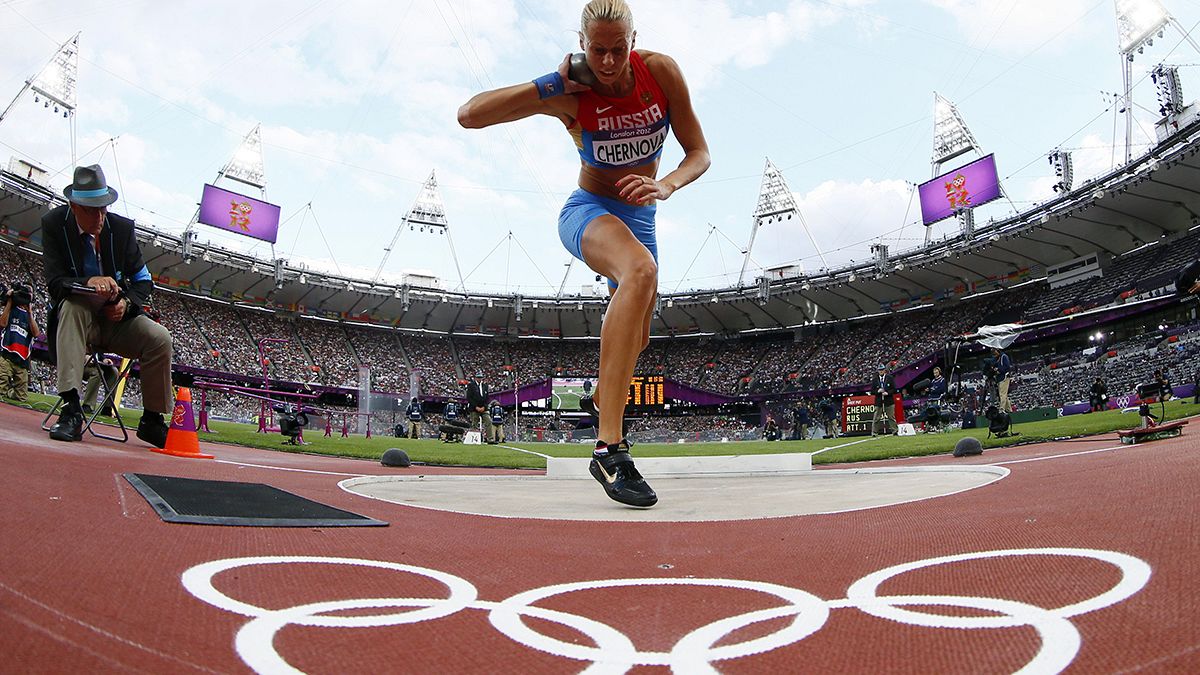A senior European Athletics official has said Russia does not have a “moral right” to compete at this summer’s Rio Olympics, as claimed by the country’s sports minister Vitaly Mutko last month.
Former Hungarian Olympic athlete Marton Gyulai was speaking ahead of the crucial IAAF meeting scheduled for June 17, where it will be decided if Russia should have its suspension from international competition lifted in time for the Rio Games.
The World Anti-Doping Agency (WADA) last November detailed systematic, “state-sponsored” doping in Russian athletics in an independent report, prompting the International Association of Athletics Federations (IAAF) to subsequently hand down a blanket ban on its track and field athletes.
“I cannot agree with the argument to claim that all Russian athletes are innocent and should therefore be allowed to compete,” Gyulai said in a telephone interview with Euronews.
“Although I am convinced that there are numerous clean world class Russian athletes, rules are rules and there has to be equal treatment for all,” he said.
WADA last week released figures showing Russia as the world’s worst doping offender of 2014 with 148 positive tests recorded out of 1,462 adverse analytical findings, 25 more than the next worst offender Italy. India was third with 96 failed tests.
Further, Russia’s main anti-doping laboratory in Moscow is currently banned from carrying out tests on blood and urine samples on behalf of WADA, having had its accreditation revoked for non-compliance. UK anti-doping has stepped in to conduct analyses of Russian samples.
“Personally, I think it’s good there have been so many positive tests in Russia, because that means someone is testing the athletes,” Gyulai said. “I argue the other side because the positives mean the cheaters are caught and punished. It’s the unrecorded positives I have a problem with.”
Gyulai, who became an European Athletics council member in 2015, suggested the IAAF may have failed to do enough to tackle the issue of doping in Russia, but added the “cheating culture engrained in society” was not restricted to only track and field.
“It’s clear the current anti-doping system is not at the standard it needs to be, but that’s not really a question of the IAAF or European Athletics doing enough,” he said. “I think the whole world has a doping problem. I feel it’s purely by chance that it happens to be Russia and athletics (caught up by the WADA report).”
NO RIDICULE
The IAAF, in response to the WADA report, created an inspection team to asses the progress of the Russian athletics federation, whose findings are likely to be the basis of the IAAF council decision on Russian participation at the Rio Olympics.
It is thought, however, the IAAF may have come under pressure from the International Olympic Committee (IOC) to re-admit Russia in time for Rio, despite critics noting six months would be insufficient for Russia to implement any reforms, and the chairman of UK Athletics claiming such a move would “invite derision”.
Athletics’ world governing body has previously come under fire for not adhering to principles of good governance and for not putting into place controls to eradicate unethical behaviour by its most senior officials.
In January, the IAAF’s own ethics committee banned for life Papa Massata Diack, a former IAAF marketing consultant and son of former IAAF president Lamine Diack, for blackmail and corruption in the cover up of a top Russian marathon runner’s positive test.
“If the decision is ultimately taken to allow Russian athletes to compete in Rio, I am convinced that it would only happen if the Council of the IAAF is given concrete and unquestionable proof by the inspection team that Russia has fulfilled all requirements,” Gyulai said.
“To say that this would result in Coe facing ridicule is like using the rules in a biased way. We accepted these rules when we had to ban Russia, but if the same rules are obeyed by Russia then we call that ridiculous?”
